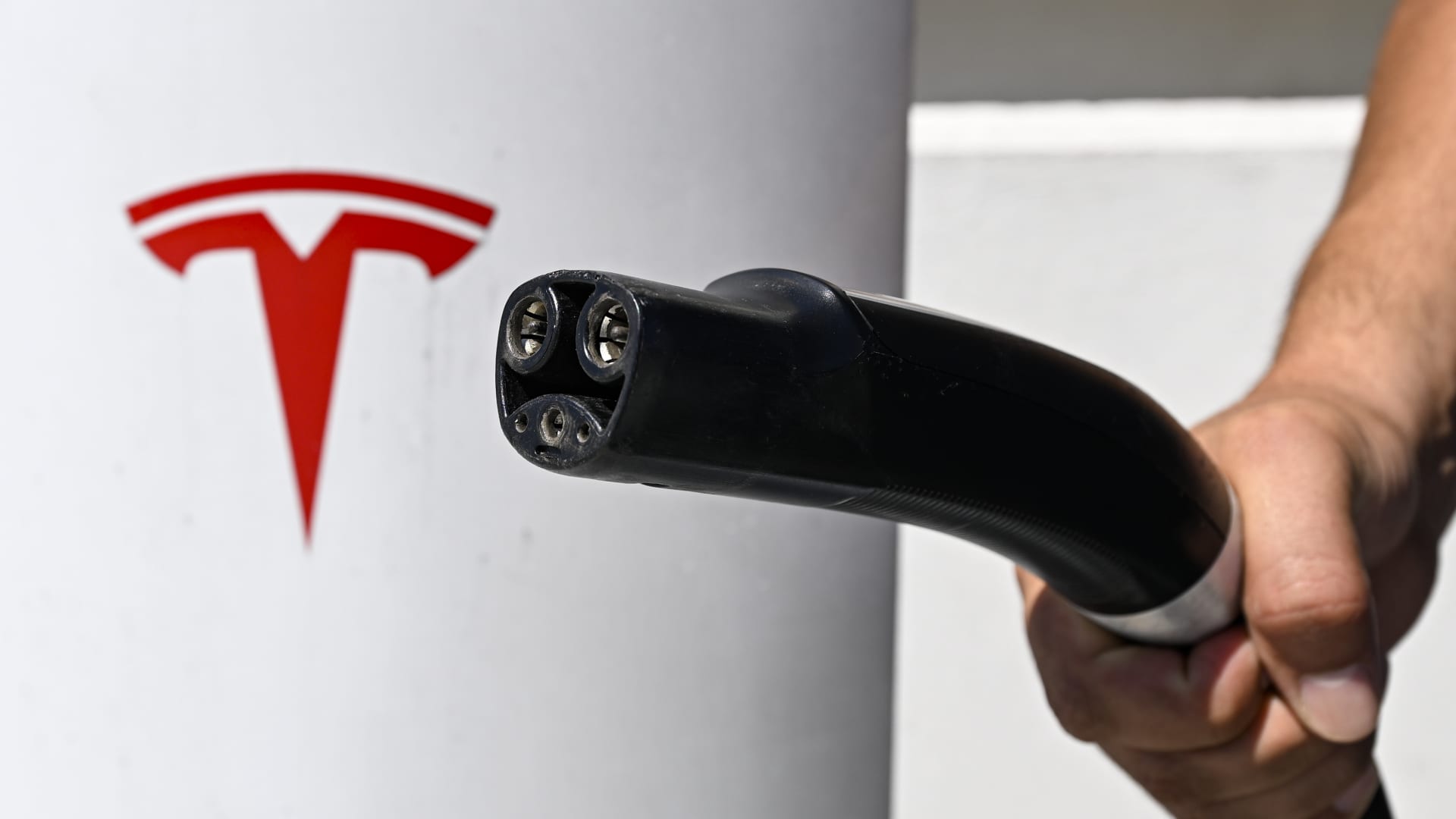Main Topic: Seven major automakers are joining forces to build a North American electric vehicle charging network to rival Tesla's and increase the number of fast-charging plugs in the U.S. and Canada.
Key Points:
1. The automakers, including General Motors, BMW, Honda, Hyundai, Kia, Mercedes, and Stellantis, will invest in building "high power" charging stations with 30,000 plugs in urban areas and along travel corridors.
2. The goal is to speed up the adoption of electric vehicles and address concerns about the availability of chargers for long-distance travel.
3. The network will be public, open to all electric vehicle owners, and will include connectors for both Tesla's North American Charging Standard plugs and the Combined Charging System plugs used by other automakers.
Main topic: The onshoring of battery manufacturing for EVs in the United States.
Key points:
1. The number of battery factories in the US has increased significantly, with about 30 factories either planned, under construction, or operational.
2. The Inflation Reduction Act (IRA) signed by President Joe Biden has incentivized automakers and consumers to produce batteries domestically.
3. Automakers and battery manufacturers have collectively invested close to $100 billion in building domestic cell and module manufacturing, with a capacity of over 1,200 gigawatt-hours before 2030.
Hint on Elon Musk: The article mentions Tesla's plans to invest billions in expanding its Gigafactory in Nevada and producing batteries for 1.5 million light-duty vehicles annually.
Tesla has received approval to launch two virtual power plants in Texas, allowing Powerwall owners to aggregate their power capacity and sell surplus power to the electric grid while being compensated, with the initial phase limited to 80 MW but expected to increase due to the significant energy storage capacity in the state.
Wedbush analyst Dan Ives predicts that Tesla's Supercharger network will generate $10 to $20 billion in annual revenue by 2030, representing 3% to 6% of Tesla's total revenue.
Mercedes-Benz is set to open its first branded EV charging stations this fall, with three locations in Atlanta, Chengdu, China, and Mannheim, Germany, and plans to expand its global network to over 2,000 points and open over 2,000 Charging Hubs by 2030.
Tesla has partnered with Hilton to install 20,000 Tesla Universal Wall Connector plugs at 2,000 hotel locations, making Hilton's EV charging network the largest among hospitality companies; meanwhile, Honda has announced that its new EVs starting in 2025 will have native access to Tesla's Supercharger network, while older EVs will require an adapter plug.
Tesla has requested $100 million in funding from the US government to build nine Megacharging stations for its all-electric semi trucks, allowing up to eight Semis to charge simultaneously at each station and curbing pollution in industrial shipping.
Tesla is set to release a new $25,000 electric car, potentially revolutionizing the world of EVs with its affordable price and expected range of 250-300 miles on a single charge.
Tesla has adjusted its plans for the next-generation electric vehicles, including the development of a fully autonomous Robotaxi and an affordable model, both to be produced on the next-generation platform; production of these vehicles will take place in Austin, Texas instead of Mexico due to the unwillingness of engineers to relocate.
The Biden Administration plans to allocate $100 million from the Bipartisan Infrastructure Law for the repair and replacement of non-operational electric vehicle (EV) charging infrastructure in the US, with 4% of the current 151,506 chargers being unavailable and this funding supplementing the $1 billion already allocated for new charger installations, which aims to address the current challenges and incentivize widespread EV adoption.
Tesla is planning to build another factory and is being sought after by various locations around the world.
Americans' hesitations to buy electric vehicles (EVs) are largely due to concerns around charging, with surveys showing that a lack of charging stations is a significant barrier to purchase, but efforts are being made to expand and improve the U.S. charging landscape through major incentives, partnerships, and the development of a single charging standard like Tesla's NACS plug design.
Ford's decision to halt the construction of a $3.5 billion battery plant in Michigan highlights the challenge for Tesla's competitors in the US market, as most of these automakers are struggling to sell enough electric vehicles at high volumes to support profitable assembly plants, according to Reuters analysis.
South Korean automakers Kia, Hyundai, and Genesis will adopt Tesla-style charging ports for their electric vehicles in the US, becoming the second best-selling EV manufacturer in the country after Tesla.
Hyundai and Kia have announced their decision to adopt Tesla's electric vehicle (EV) charging technology in the United States, making Tesla's superchargers closer to becoming the industry standard at the expense of the rival Combined Charging System (CCS).
